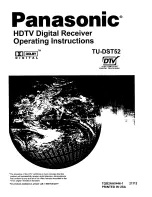
6 |
Alan 199 Instruction Guide
Alan 199 Instruction Guide
| 7
normal 1/2 wavelength whip antenna is too long for roof mounting on
a vehicle, the antenna is shortened and loading coil is used to provide
the proper electrical length. Our fiberglass roof mount is a good durable
antenna.
Front Cowl Mount
The radiation pattern is slightly greater in the direction of the rear fender
opposite the side on which the antenna is mounted. However, the front
position offers a number of advantages. The CB antenna can be easily
mounted. It can double as both the CB and the standard auto radio an-
tenna by employing a two-way coupler. Ask about our complete line of
antennas.
rear Deck Mount
The radiation pattern is stronger in the direction of the front fender op-
posite the side on which the antenna is mounted. In this position you can
use a full quarter-wave antenna or a shorter loaded whip. Here you might
consider one of the full 2.5 meters whips.
Bumper Mount
The antenna radiates in a pattern directly in front of and to the rear of
the vehicle, with maximum radiation directly away from the vehicle, in a
horizontal plane. Despite its fairly irregular pattern, a bumpermounted
full-length whip antenna will normally give the best results. Removing
the antenna is simple and will leave no holes in the car.
ANTENNA SYSTEM
A mobile antenna system is not limited to just the antenna. The transmis-
sion line as well as the vehicle are important factors in the total anten-
na system. Therefore, you must use the correct type of transmission line
and mount the antenna securely in a position that will give you optimal
results. Use coaxial cable with an impedance of 50 Ohms. We suggest
type RG 58/U for lengths under 2.5 m or RG 8/U for longer lengths. Ge-
nerally speaking, you should keep the length of the transmission line to
a minimum. The above discussion is as important for reception as for the
transmission. If a mismatch exists between the antenna and the receiver,
the excellent sensitivity and signal-to-noise radio of the receiver circuit
will be defeated.
suggestions
A few general rules should help you to install any mobile antenna pro-
perly.
• Keep it as far as possible from the main bulk of the vehicle.
• During operation, it must be vertical, and rigid enough to remain ver-
tical when the vehicle or boat is in motion.
• Mount it as far as possible from sources of noise (ignition system,
gauges, etc.) and keep the transmission line away from these noise
sources.
• An antenna mounted in a boat requires a good ground connection.
This can be either a metal hull or a ground made of tin-foil or copper
sheeting.
This ground should cover an area of at least 1 m2 or more. Be sure the
transceiver also has an adequate ground. There are many types of mobile
CB antennas: a full quarter-wave length whip, a centerloaded whip, top
loaded whip and the base loaded type are typical. A vertically polarized
whip antenna is best suited for mobile service. It is omnidirectional. If it’s
the loaded type, you will find it a physically shorter antenna. But, for gre-
ater efficiency the 2.5 m long, full quarter-wave whip is better. Antenna
length is directly related to efficiency.
Generally, the longer it is, the more efficient will be.
There are many possible antenna locations on a car.
Four of the most popular are shown and discussed on the following.
roof Mount
In this position the antenna radiates equally in all directions. Since the













































